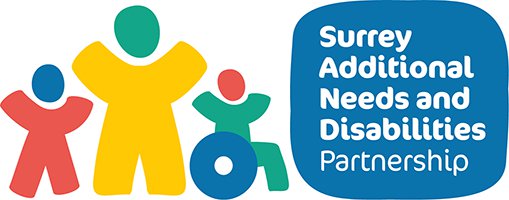What is an EHC needs assessment?
An Education, Health and Care (EHC) needs assessment is a detailed look at a child's or young person's special educational needs and the support he or she may need in order to learn.
Under the Children and Families Act 2014, local authorities are responsible for carrying out EHC needs assessments. If you live in Surrey, the local authority is Surrey County Council.
Some children may have exceptional individual situations or extremely high-levels of need which require an EHC needs assessment very early on. In these cases, we will work with the appropriate practitioners and start the process without delay.
But for most children, EHC needs assessment should not be the first step in getting the SEN support for your child. It usually follows on from planning already undertaken with parents and young people in partnership with an early years provider, school, post-16 setting or other provider.
Once completed, the assessment may result in the decision to issue an Education, Health and Care (EHC) plan for the child or young person.
An EHC needs assessment will not always lead to an EHC plan. An education setting may be able to use the information gathered during an assessment to meet the child or young person's needs, without requiring an EHC plan.
How long does it take?
If you are requesting a new Education, Health and Care assessment, the whole assessment and planning process should be completed within 20 weeks. You can see the full timeline below.
If you are concerned that the process is taking longer than expected, you may wish to contact SEND Advice Surrey who can help you explore your options.
What information needs to be provided with a request for assessment?
If the request for assessment is being made by your child's school or setting, or by a service supporting your child, they will gather the information needed to submit the request for assessment.
If you are a parent or carer submitting a request for assessment independently, we recommend contacting the Learners' Single Point of Access (L-SPA) before completing the request. They will be able to let you know more about the type of information you need to provide to support the request for assessment. You can also contact SEND Advice Surrey, who can provide impartial support and assistance.
The information you send with your request for an EHC Assessment helps the Local Authority to decide:
- whether the child or young person has, or may have special educational needs
- whether he or she may need special educational provision in accordance with an EHC Plan.
In most cases, the request should provide evidence that attempts have been made to identify and implement appropriate strategies (not just one). This does not apply in cases where a child or young person has a severe or profound disability.
You may wish to gather together all the reports and letters from your child's school or other setting and any other assessments that have been produced about your child, e.g. from a doctor. You may also want to write about your child's needs and how long they have had them.
Examples of documentation that should be submitted with the request for a needs assessment include:
- parents' views
- child's or young person's views (where they are able to express them)
- copy of current SEN support plan or Surrey support plan
- copy of current provision map with costings (to demonstrate that notional SEN support funding has been exhausted)
- Early Years: Moving On (if relevant)
- educational psychologist (EP) advice, or evidence of EP input
- advice from other practitioners or individuals important to the child and young person
- copies of recent reviews (which demonstrate the actual progress being achieved by the child or young person)
- most recent annual school or college report (if applicable)
- minutes of other relevant meetings, e.g. the SEND support review meeting where the potential request for a needs assessment was discussed.
For a young person planning to remain in education and training, evidence of planned outcomes should be provided so that the appropriateness of further support for education or training can be properly evaluated.
What the SEND Code of Practice says:
The SEND Code of Practice provides statutory guidance to local authorities and other organisations that provide support for children and young people with special educational needs and disabilities (SEND). It sets out what local authorities must do to support children and young people with SEND and how they should carry out these duties.
SEND Code of Practise chapter 9.14
"In considering whether an EHC needs assessment is necessary, the local authority should consider whether there is evidence that despite the early years provider, school or post-16 institution having taken relevant and purposeful action to identify, assess and meet the special educational needs of the child or young person, the child or young person has not made expected progress"
